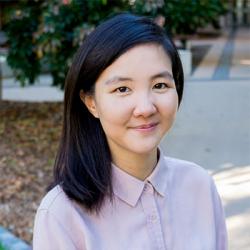
PhD (2013)
Hataya is a Senior Lecturer in Human Resource Management at the University of Waikato, New Zealand. She received her PhD in Management (Organisational Behaviour) from The Australian National University’s College of Business and Economics. Prior to joining Waikato, she worked in academic positions at the University of Queensland in Australia and the University of Sussex in UK.
During her appointment at Sussex, she won two university-level awards for Innovative or Outstanding Undergraduate Teaching (2015 and 2016). Hataya is a member of two professional associations based in the United Kingdom (UK), notably Chartered Institute of Personnel and Development (CIPD) and Higher Education Academy (HEA).
You have worked in universities based in the UK, Australia and now New Zealand. What are the differences and similarities in their recruitment processes?
There are minor differences. In terms of the recruitment processes, all universities required me to have a preliminary interview via Skype or Zoom. I was often later invited to an in-person interview, where we mainly discussed my research and teaching interests. To put it simply, each university had similar expectations, including a good track record of published research, a solid pipeline of work-in-progress and a satisfactory teaching or tutoring score.
The three universities I have worked in also expect faculty members to meet specific research standards – the Australian Business Deans Council ranking in Australia and New Zealand, and the Chartered Association of Business Schools ranking in the UK.
Reflecting on your time as a PhD student, what were three biggest challenges you faced and how did you overcome them?
The three biggest challenges I encountered and had to overcome were:
- Gaining a better understanding of myself, and subsequently my career dreams. When I first decided to do my PhD, I was very much swayed by the thought of having the title ’Dr’ in front of my name as an affirmation to myself and others of how smart I am. However, there is a lot more to what the academic world entails. Fortunately, the support I received from my primary supervisor, Associate Professor Alessandra Capezio, and conversations I had with many other CBE academics, helped me gain a more realistic perspective of what my academic career would look like. During this time, I also got to explore different experiences that enabled me to better understand other aspects of academia such as teaching, reviewing manuscripts, attending academic conferences, working as a research assistant, and working on publications. My conclusion is it is not the ’Dr’ title that matters but rather the experience I have gained and the realisation of how meaningful my academic career is.
- Dealing with my immaturity. Given my inexperience, whenever I faced difficulties that hindered my academic performance, I blamed others rather than carefully examining what I may had done wrong. I decided to spend a couple of weeks self-reflecting, which was not an easy experience as it required me to step outside my comfort zone, but it enabled me to become much more self-aware. Eventually, I learnt to take full responsibility and quickly got myself back on track. Importantly, I was so fortunate to have such strong social support from my PhD friends and peers throughout my PhD journey.
- Balancing work and life. During my PhD program, I began working long hours, which led to me getting sick and taking a couple of months to recuperate. Ever since, I have taken serious initiative to change the way I view work and achievements – a sustainable way to be more productive at work, while also maintaining a healthy lifestyle. I developed healthy habits, such as getting up early, finishing work by 5pm, exercising every day, practising mindfulness and socialising. The overall results of this routine were amazing.
How did you manage working from home as a result of COVID-19?
It is important to be able to draw a clear line between your work and personal life while working from home. I noticed I formed some new habits while working from home, such as checking work emails while spending time with my family as well as using some weekends to work on my research and teaching preparation. I addressed this by ensuring I only worked for a certain number of hours per day and by setting aside some time for responding to emails. I now I finish work by 5pm, which allows me to exercise or do other activities and as a result, my overall wellbeing has significantly improved. For me personally, a major advantage of working from home is the reduction in distractions, which enables me to be more productive with my work-related tasks.
What is your advice for our current PhD candidates, who are early in their candidature or close to completion, on their career preparation?
For those of you who are still early in your candidature, I highly suggest you spend some time addressing the following questions:
- How do you define life success or fulfilment?
- How would you like to see yourself as an academic?
- What exactly do you want to get or achieve from being an academic?
- What will an academic career offer you?
By addressing these questions, you will have realistic career expectations, be able to put together the right portfolio when you start pitching yourself in the academic world and recognise the universities that are a good fit for you.
